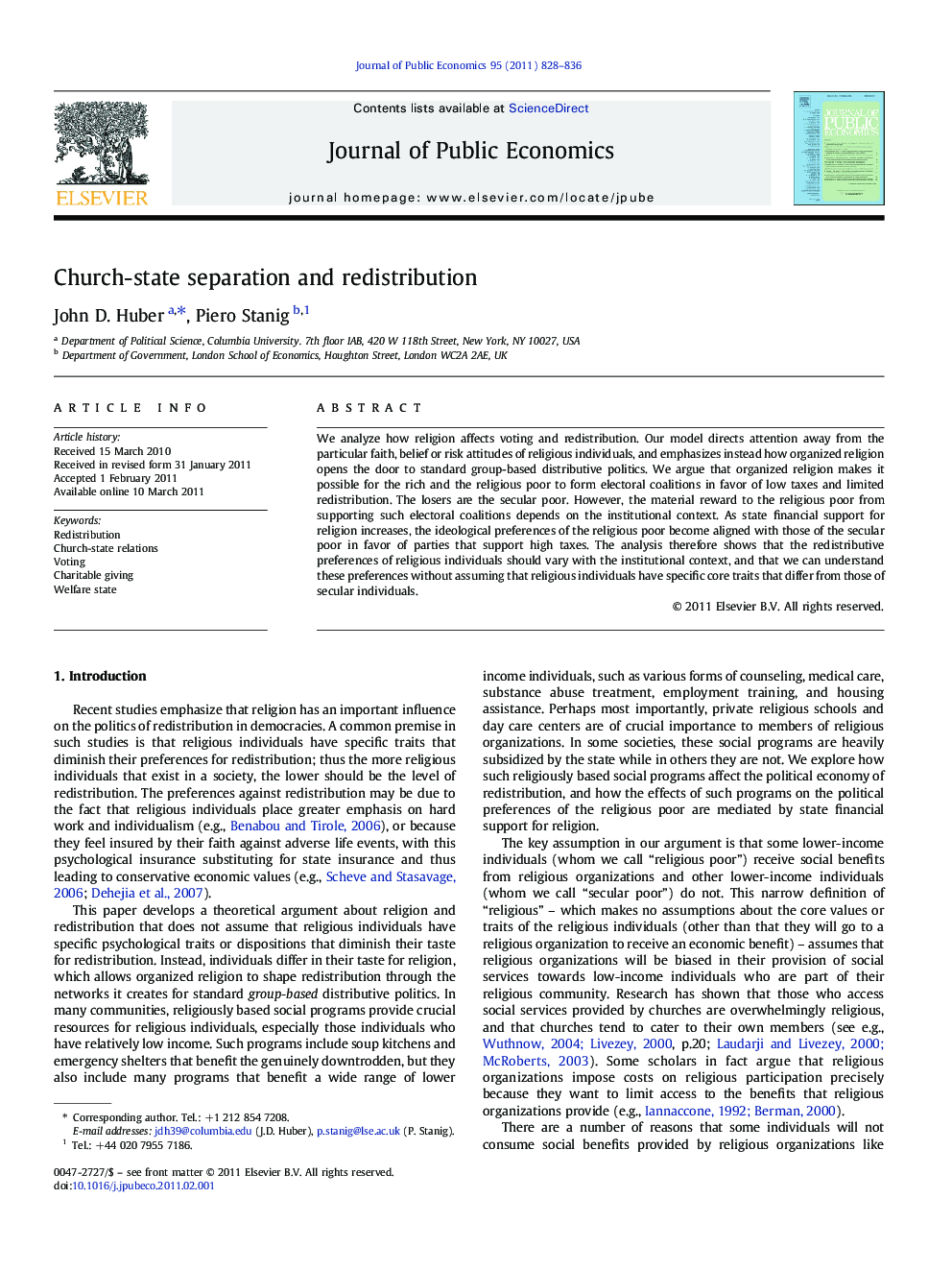| کد مقاله | کد نشریه | سال انتشار | مقاله انگلیسی | نسخه تمام متن |
|---|---|---|---|---|
| 969372 | 1479469 | 2011 | 9 صفحه PDF | دانلود رایگان |

We analyze how religion affects voting and redistribution. Our model directs attention away from the particular faith, belief or risk attitudes of religious individuals, and emphasizes instead how organized religion opens the door to standard group-based distributive politics. We argue that organized religion makes it possible for the rich and the religious poor to form electoral coalitions in favor of low taxes and limited redistribution. The losers are the secular poor. However, the material reward to the religious poor from supporting such electoral coalitions depends on the institutional context. As state financial support for religion increases, the ideological preferences of the religious poor become aligned with those of the secular poor in favor of parties that support high taxes. The analysis therefore shows that the redistributive preferences of religious individuals should vary with the institutional context, and that we can understand these preferences without assuming that religious individuals have specific core traits that differ from those of secular individuals.
Research Highlights
► Formal model of party competition with religion and redistribution.
► Religious poor pitted against secular poor in competition for redistribution from rich.
► Religious-secular conflict diminishes as state support for religion increases.
► Redistributive preferences of religious individuals vary with institutional context.
► Empirical tests support model's predictions about preferences.
Journal: Journal of Public Economics - Volume 95, Issues 7–8, August 2011, Pages 828–836